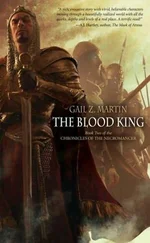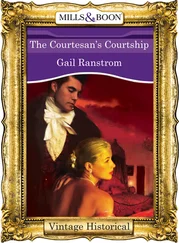Miriam: The skinny man with the sideburns was here again this afternoon, asking about you, if I know when you’ll be back. Now listen to me and believe me when I tell you: study, work, study, work, day in day out, it’s no good. A person isn’t a machine, and a woman especially has to find the middle way.
Noa: It’s not my fault that I haven’t got any time.
Miriam: I’ll tell you what, you leave the little one with me, all night long, and go to a movie. And don’t hurry back. A gift from me.
Noa: With you it’s work, work all day long, and you don’t go to the movies either.… How’s Avi? Is he still with that nice girl I met?
Miriam: Don’t talk to me about her, I don’t want to say anything bad. She’s not nice at all, she just wants to butter me up.
Noa: The man with the sideburns isn’t nice at all either.
It took a few weeks, but during Hanukah, when Miriam’s nursery school was closed and Hagar’s daycare was open, we went to the cinema together to see a matinee of The Godfather . Both of us groaned in chorus at the sight of the severed horse’s head, we both relaxed together in our chairs when Michael finally put two bullets into the police captain — something, not in his appearance but in his body tension, reminded me of Alek — and only when we walked down the street and peeled the paper off the chocolate bar we had forgotten to eat inside the movie theater did I realize that Miriam Marie had understood the movie completely differently from me. She said that it was very sad how Michael had been dragged into a life of crime just because of his family, and how come his mother as the mother of the family didn’t have a word to say about the ways of her menfolk?
“Didn’t you enjoy watching Sonny beating up Connie’s husband?” I knew she’d enjoyed it, I was sitting next to her, but I wanted to hear her say it. “I enjoyed it, of course I enjoyed it,” she admitted. “And don’t you think it was just?” “Just?” she exclaimed with majestic disdain, “Just? Believe me, if there was any justice in this world, half the men would be in wheelchairs. Including my engineer and including that one of yours, who doesn’t pay a penny for his daughter. But what good will it do us to say so?” Suddenly, I remember, I had a tremendous urge to hug her, but hugs weren’t part of our repertoire, so I just broke a piece off the bar of chocolate she was holding in her hand and put it in my mouth.
Miriam would read all my books, nobly pass over the passages that embarrassed her, and generously forgive my and Nira’s lust for revenge and justice. My books would stand in a neat row behind the glass doors of her display cabinet, and she would enjoy showing people the dedications, but nevertheless I was destined to hear the most accurate criticism of them from her. She would ask about the sales, I would mention that most of the people who bought the books were women, and then she would say consolingly: “It’s the same thing in the nursery school when we tell the children fairy stories. You can see how it grabs the girls, and the boys start squirming and making noise right from the beginning. Boys are more into reality. And your books are more naive, like fairy tales.”
STUDYING LAW
Alek didn’t pay child support, and even if he’d had the wherewithal he wouldn’t have paid it, he would simply have given us as much as we needed without keeping accounts. I know it. But the way things turned out, when I needed money Alek didn’t have any either, and when Alek’s situation improved I was no longer in need.
Before he returned to Paris I said something about thinking of studying law, and that without help from my parents there was no way I would be able to do it, not in the next few years at least. I didn’t mean to hint, but for a moment an expression appeared on his face which somehow reminded me of the way he looked standing in the door on the night my labor started. I understood that he was condemning himself for not being able to help and I was sorry for the misunderstanding.
He helped me in another way, however, by his reaction to the story about Aunt Greta. Aunt Greta had announced that she was coming on a visit to Israel to check out her donation to Hadassah, and up to Alek’s departure it was not yet clear whether she intended summoning all or only some of us to her presence, and the discussions and conjectures about this question, and about Aunt Greta in general, injected a little of the old vitality into the family. The fact of the donation to Hadassah was unprecedented in itself, because up to now she had totally rejected the state that had robbed her of my father. Not that she denied its right to exist, she simply ignored its existence completely. Perhaps the war had provided her with the pretext for a reconciliation she had desired even beforehand, there was no way of knowing.
To my surprise Alek showed a keen interest in this story, he liked family mythologies, and so it happened that I told him the whole legend in detail.
Aunt Greta was my grandmother’s sister, and when my father was a small child they packed him up and sent him by ship from Hamburg to New York to stay with her. His mother, Grandma Hannah, had died, apparently of a complication of influenza, and in a certain, terrible sense it could be said that this was his good fortune, since but for Grandma Hannah’s fatal attack of influenza, it is doubtful if my father would have survived and I would have been born.
Aunt Greta’s husband, Uncle Haim who was a socialist, “went and killed himself,” in his wife’s words, as a volunteer in the Spanish Civil War, and he wasn’t even killed by a bullet, but died there two weeks after his arrival from dysentery. Uncle Haim’s death, and perhaps also the manner of his death, gave rise in Aunt Greta to an impatient skepticism with regard to volunteers in general, as well as the general foolishness of the world, and armed with this angry skepticism she sold her late husband’s laundry and devoted herself to bringing up her nephew and to the real estate business. Buying apartments, dividing them up, and renting them out. In 1948, when my father announced that he was going to fight the Arabs, Aunt Greta reacted with disapproval, to put it mildly, and when he met my mother and informed her that he was getting married and remaining in Israel — perhaps one day she too might consider joining him there? — she broke off relations with him. My father went on writing to her from time to time anyway: greeting cards for the New Year, announcements of the birth of his daughters, photographs, drawings made by Talush and me, and various items of family news, to which she eventually began to reply, albeit coldly. Towards my mother, on the other hand, there was no attempt at politeness, only obdurate, unrelenting hostility, and the letters my mother wrote in her broken English were returned unopened. The question now on the family agenda was whether Aunt Greta was about to effect a reconciliation only with the state or also with the wife, or whether perhaps she had no intention of reconciling with anybody, and the visit and the donation to Hadassah were intended only to provoke us.
Alek was evidently fascinated by this story. He said that my Aunt Greta sounded like “someone worth knowing, not at all like an American person,” and added that “every family needs one rich Aunt Greta to make life interesting.” His lighthearted, literary attitude to something I saw as a complicated family dynamic inspired me after he left to write to Aunt Greta and tell her about myself, about baby Hagar, about my keen desire to study law and about my parents’ opposition to this project. Shamelessly, I even hinted that the main obstacle was my mother. This wasn’t true, and it wasn’t fair, but I simply couldn’t see myself working at Soupçon until I managed to save up enough money to finance my studies, and I couldn’t think of any other way out. When I wrote my manipulative letter to Aunt Greta, I imagined myself reading it aloud to Alek. I knew that he would find it entertaining and appropriate to the story and character of the rich, tight-fisted aunt, who every family should possess.
Читать дальше












